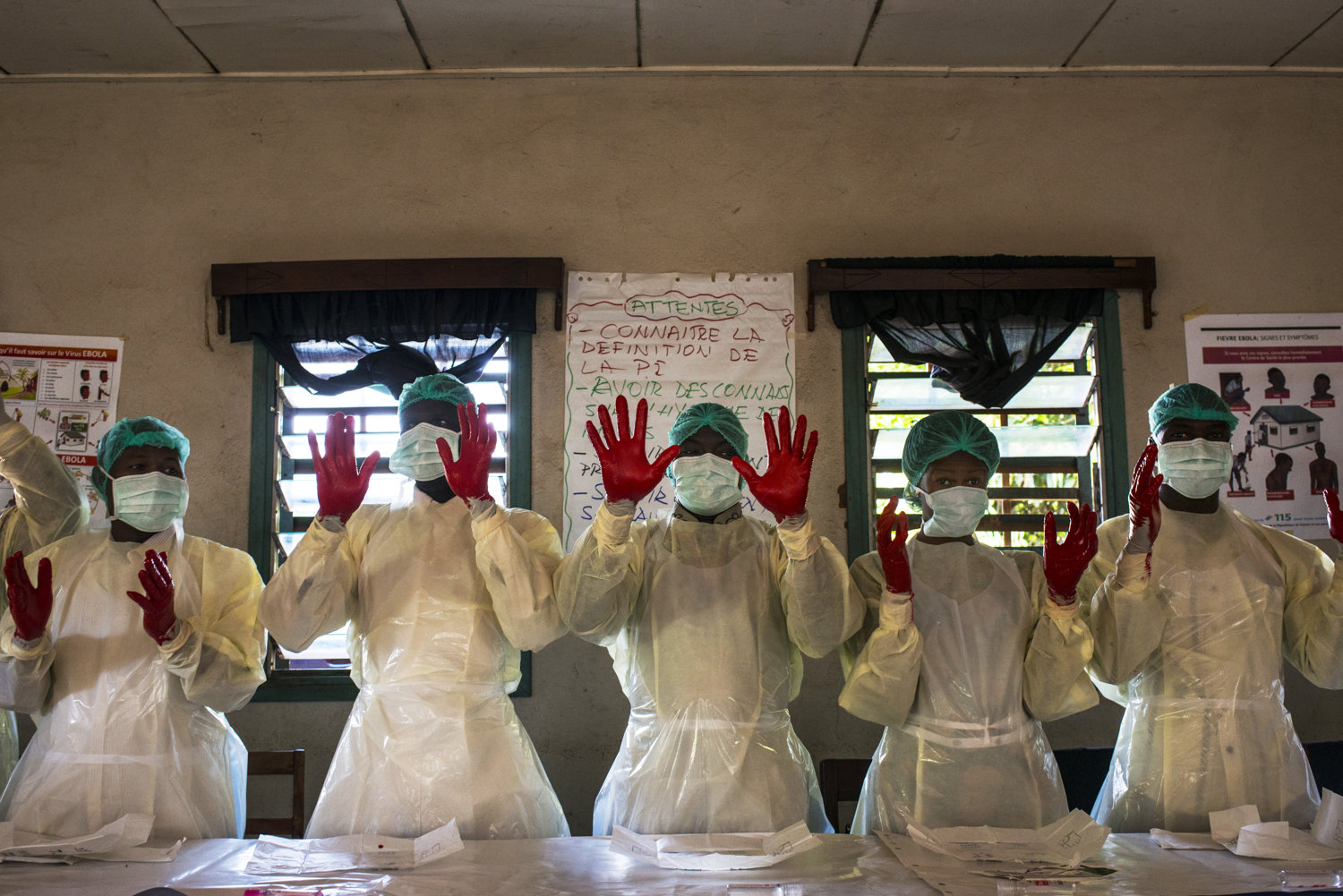
Students practice hand-washing with paint to show the spots they missed. Students are handed out protective gear to practice with on Day 2 of the JHIPAGO training. This session is led by Mrs Saran Kaba-in Faranah, Guinea on November 17th, 2015.
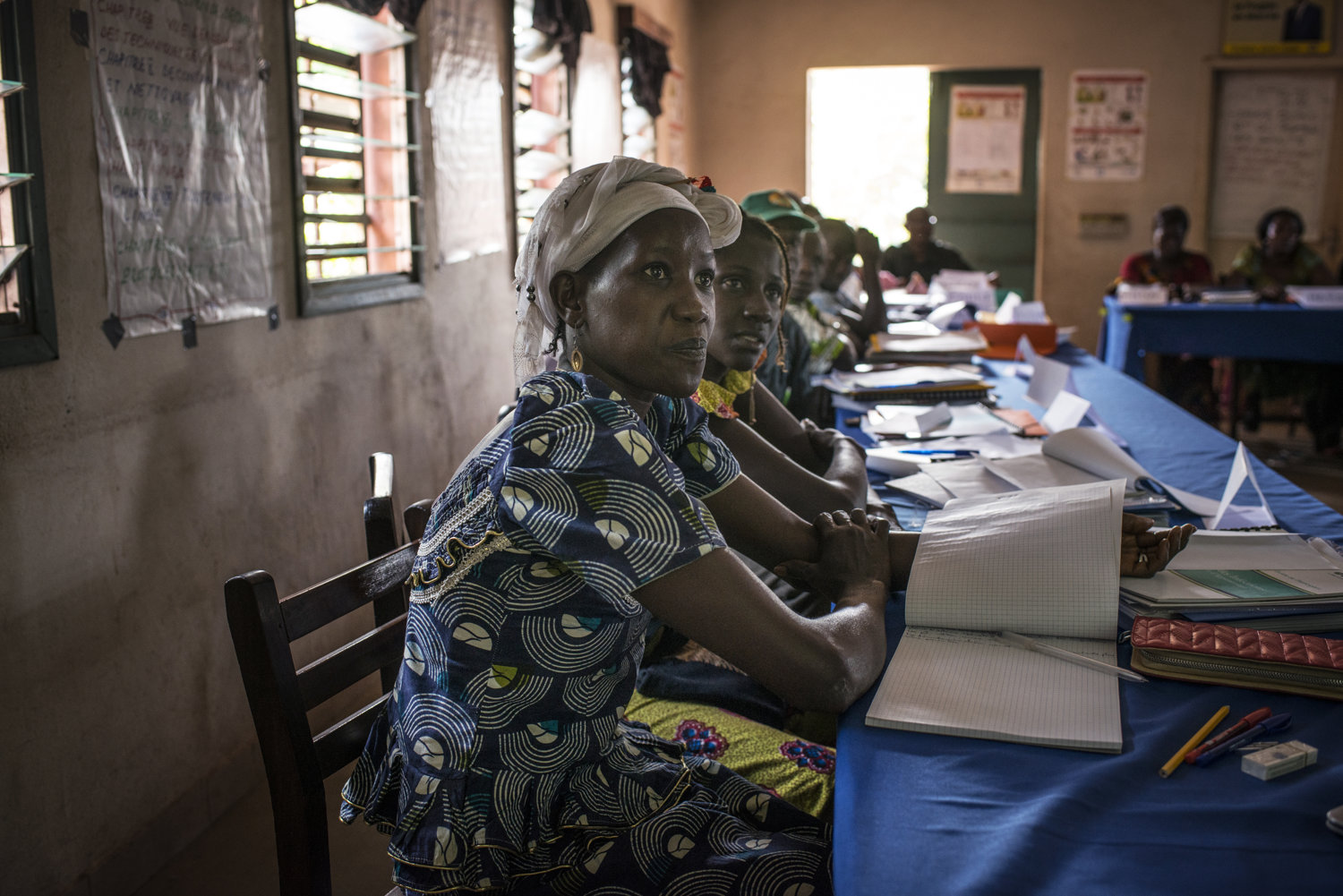
Student Fofana Kadiatagbe at Day 1 of the JHIPAGO training which consists of five days focusing on disease prevention and proper use of protective gear to keep medical workers and patients safe.
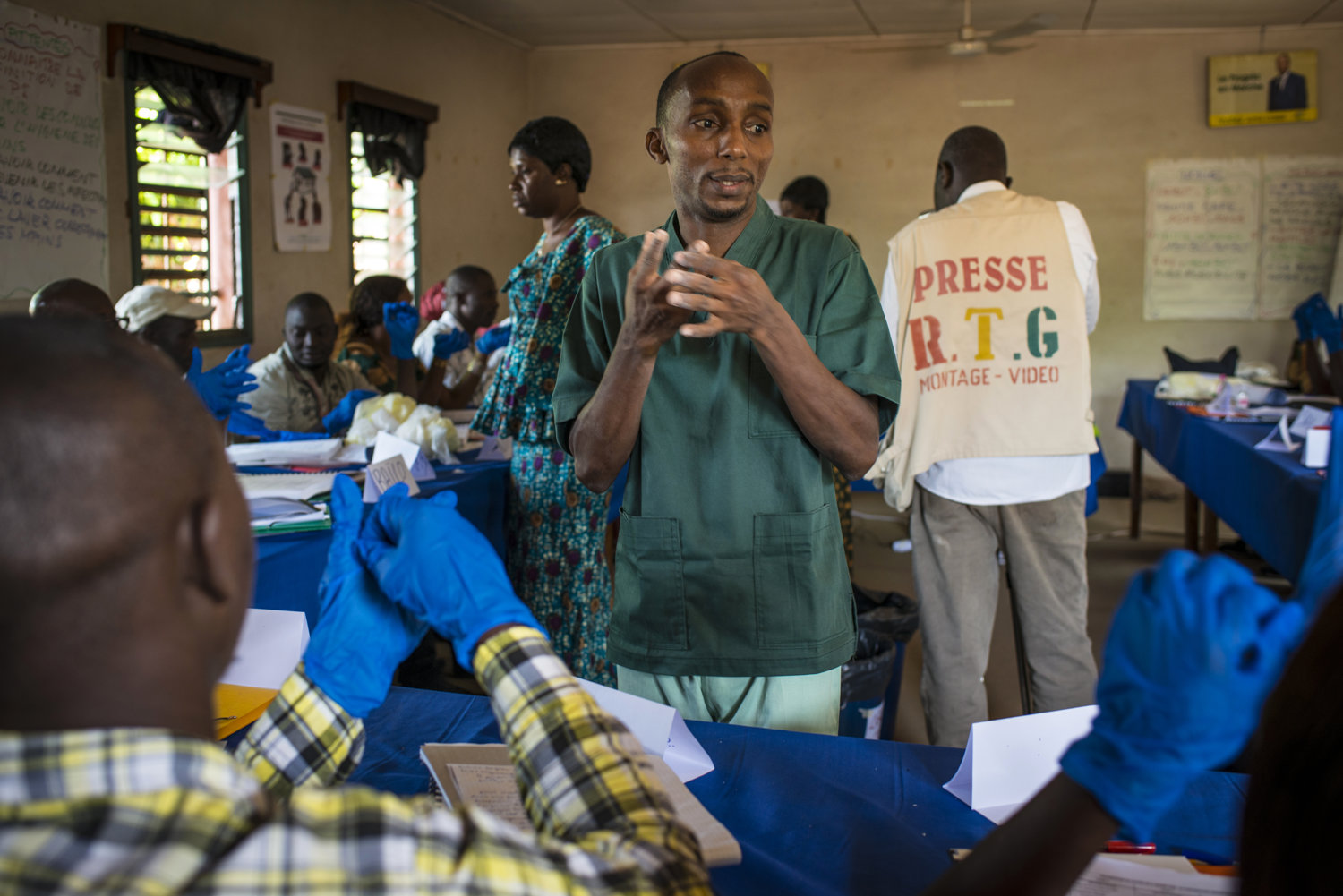
Dr. Thierno Sadou, shows students how to put on and take off gloves safely on.
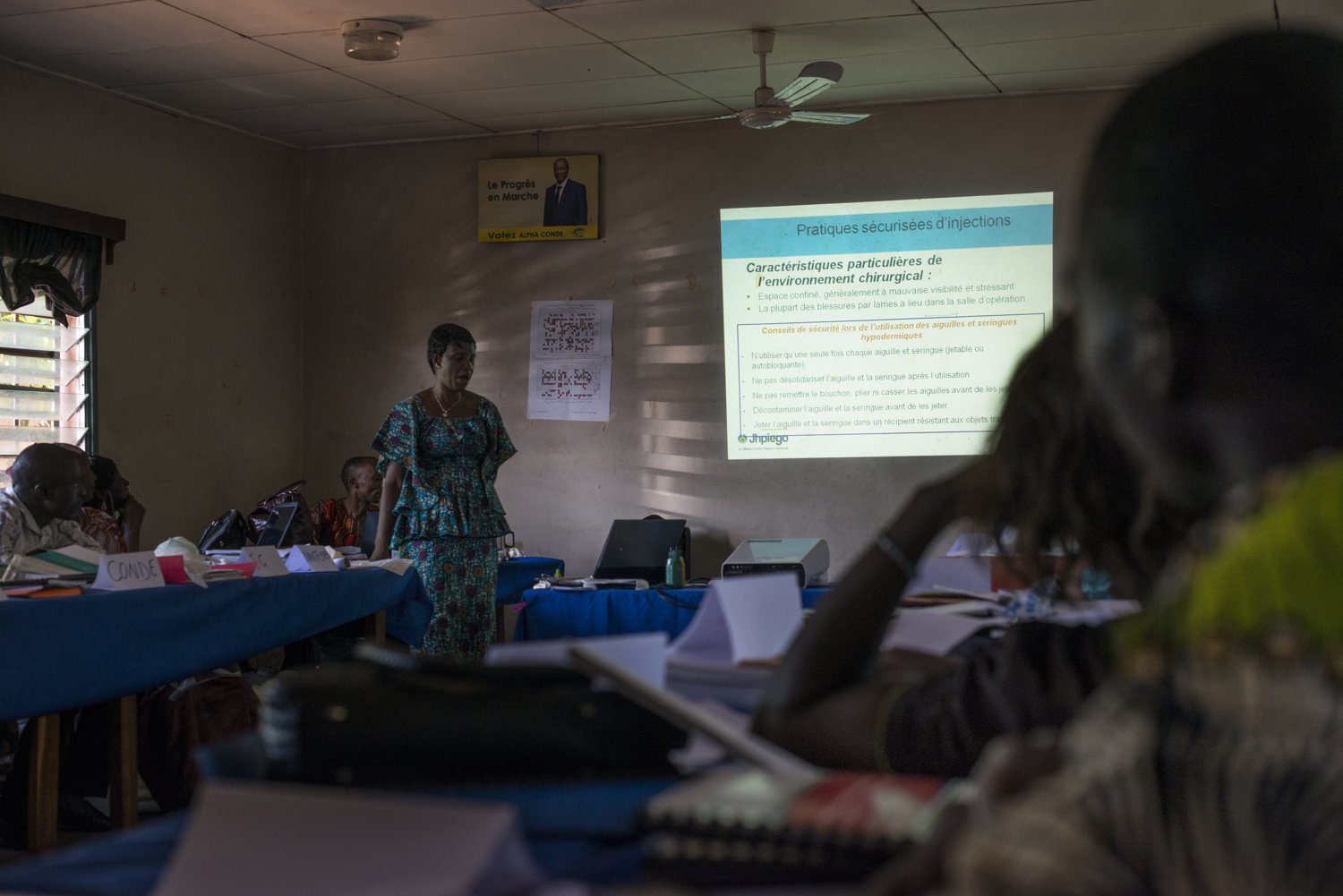
Dr. Kadiatou Traore leads a session in Faranah, Guinea on November 17th, 2015.
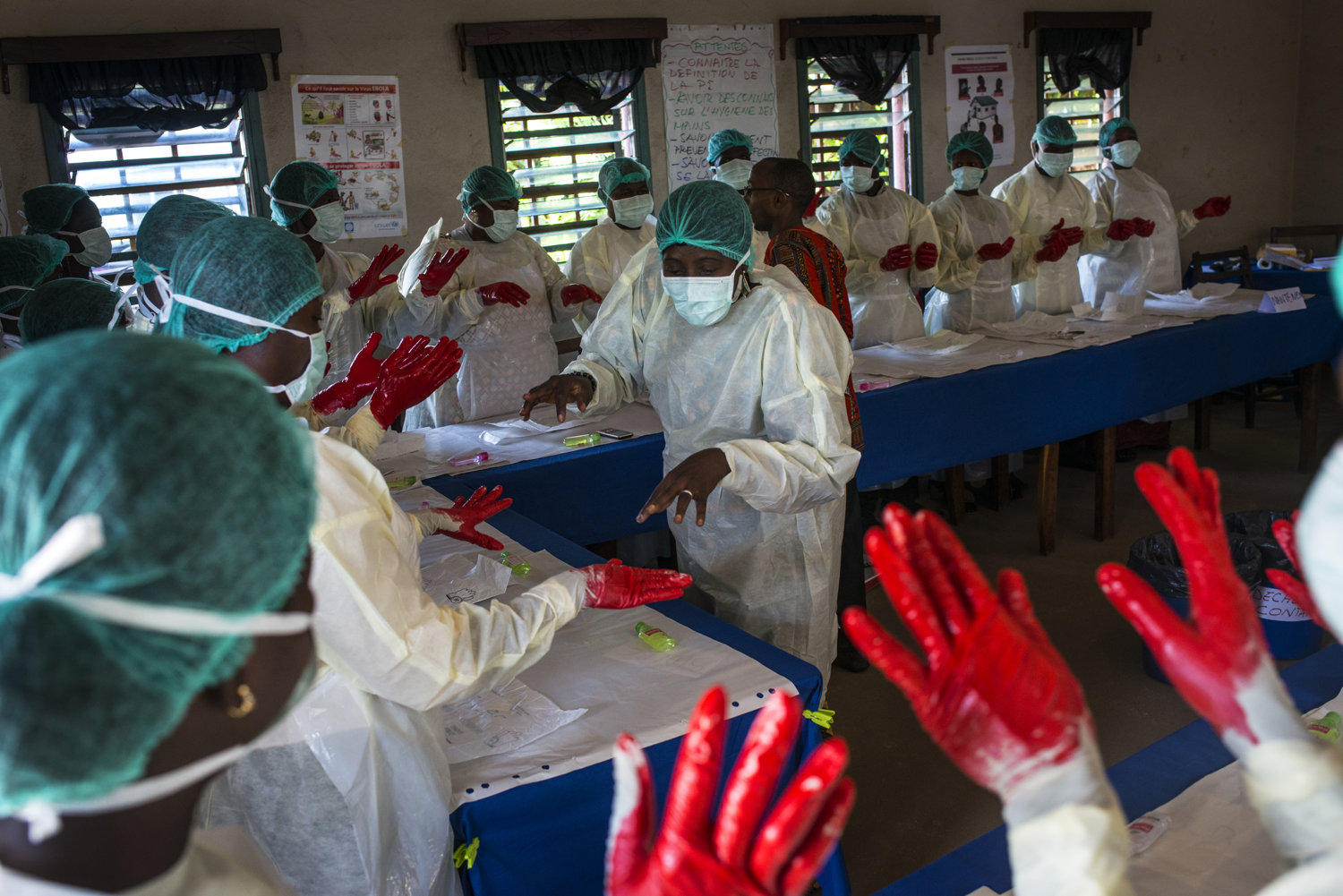
Students practice hand-washing with paint to show the spots they missed.
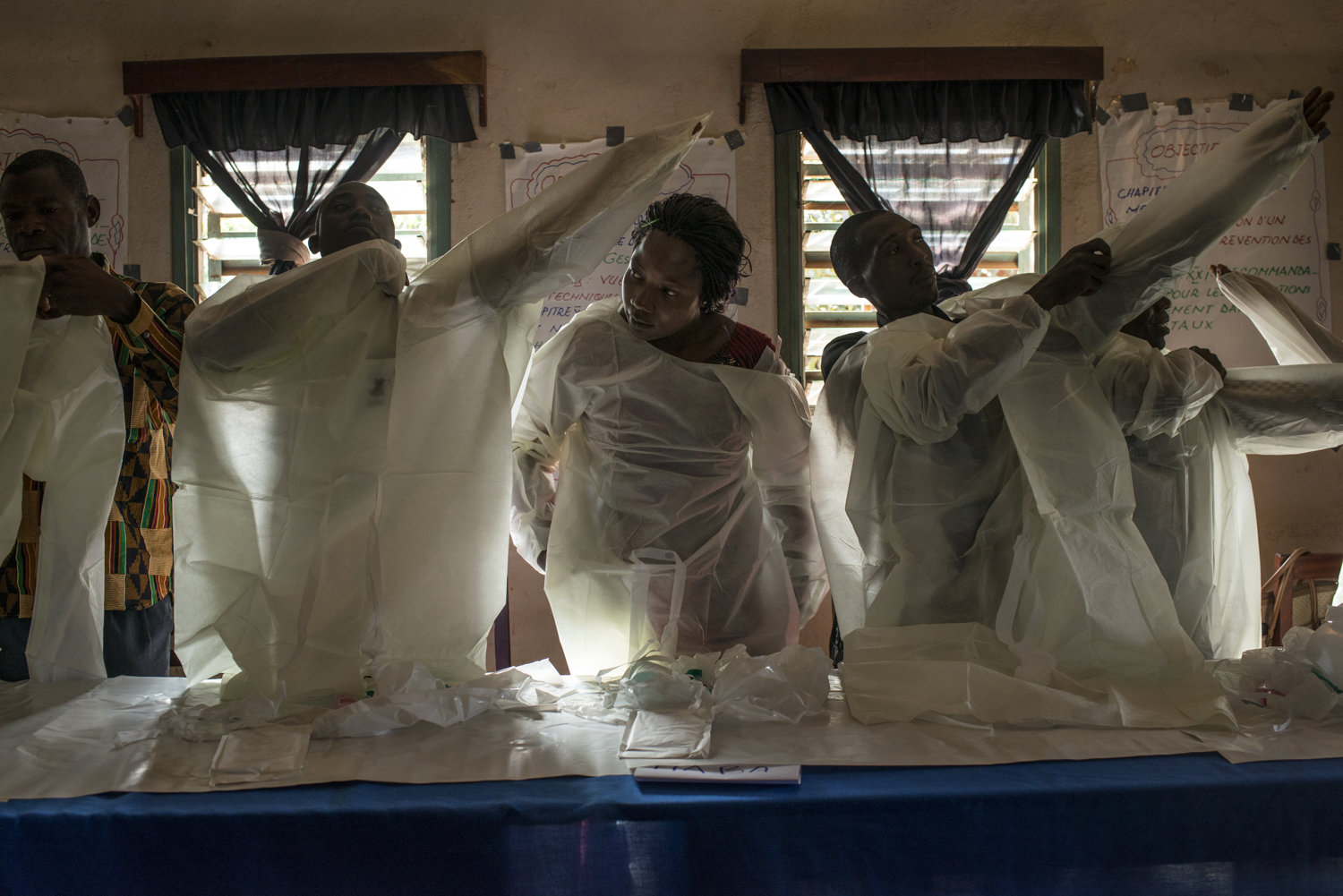
Elisa, center, practices putting on protective gear with her fellow students. Students are handed out protective gear to practice with on Day 2 of the JHIPAGO training. This session is led by Mrs Saran Kaba-in Faranah, Guinea on November 17th, 2015.
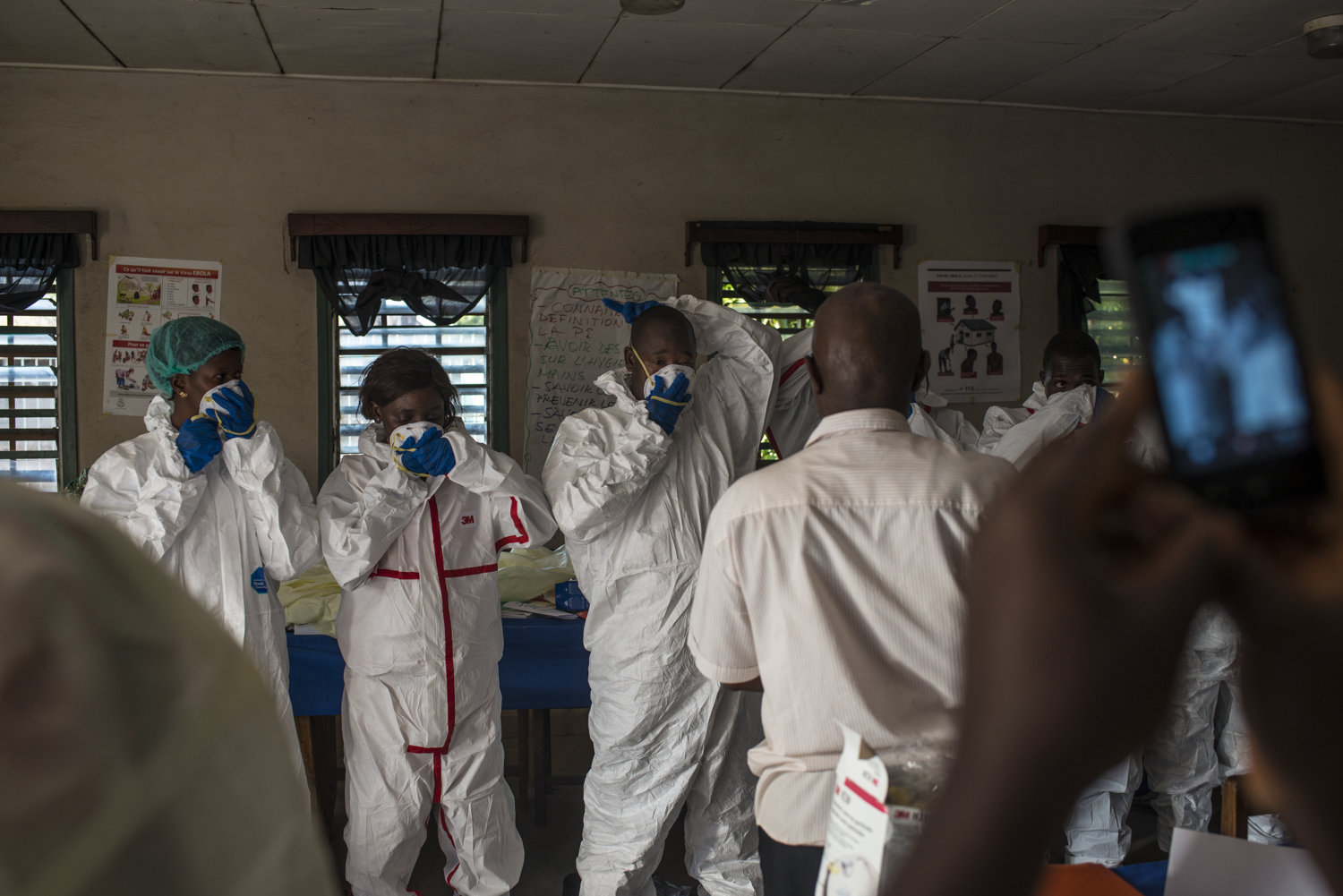
At the training students learn the proper way to put on, and take off protective gear without endangering them or the patients, this session is administered by Dr. Thierno Sadou.
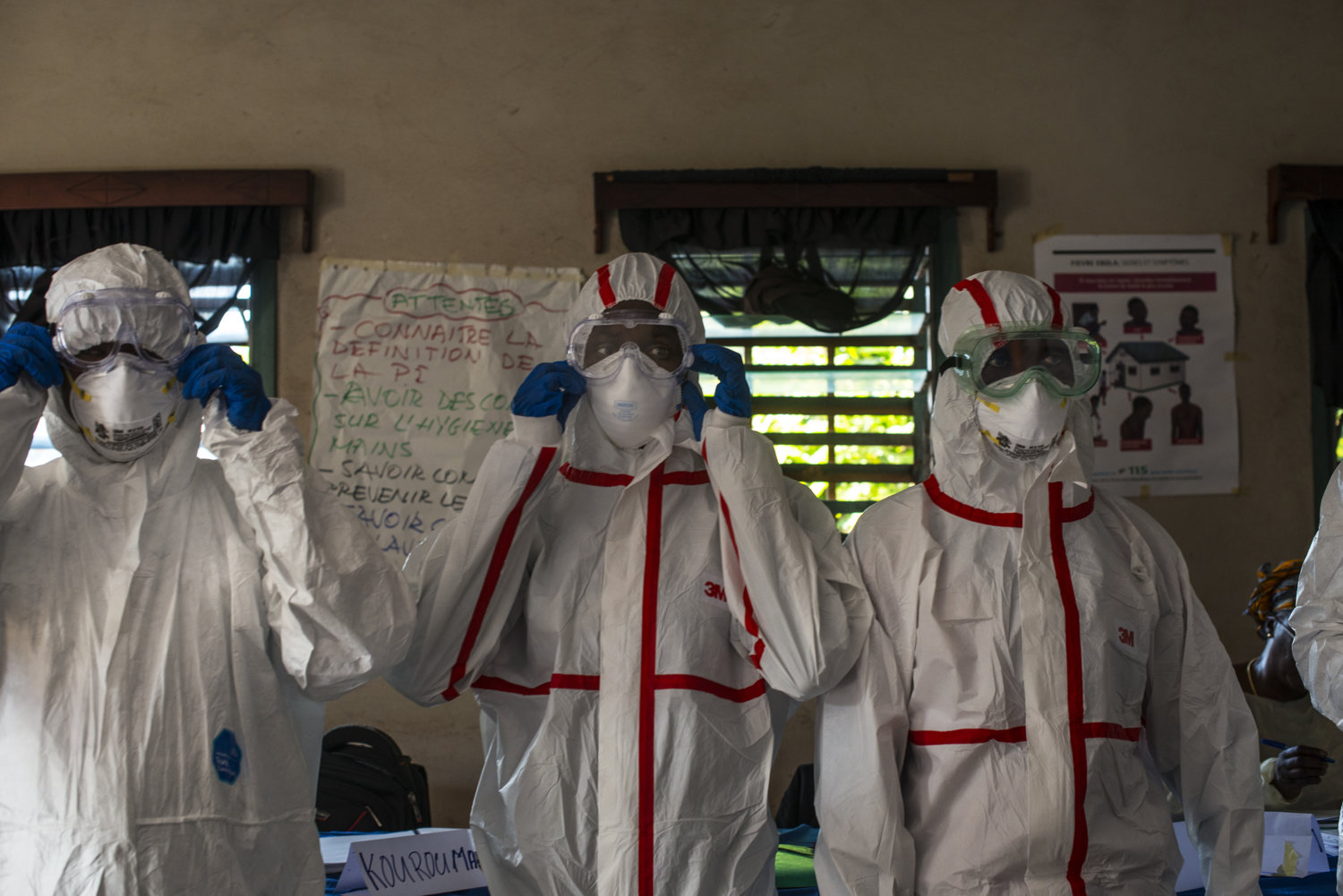
At the training students learn the proper way to put on, and take off protective gear without endangering them or the patients, this session is administered by Dr. Thierno Sadou.
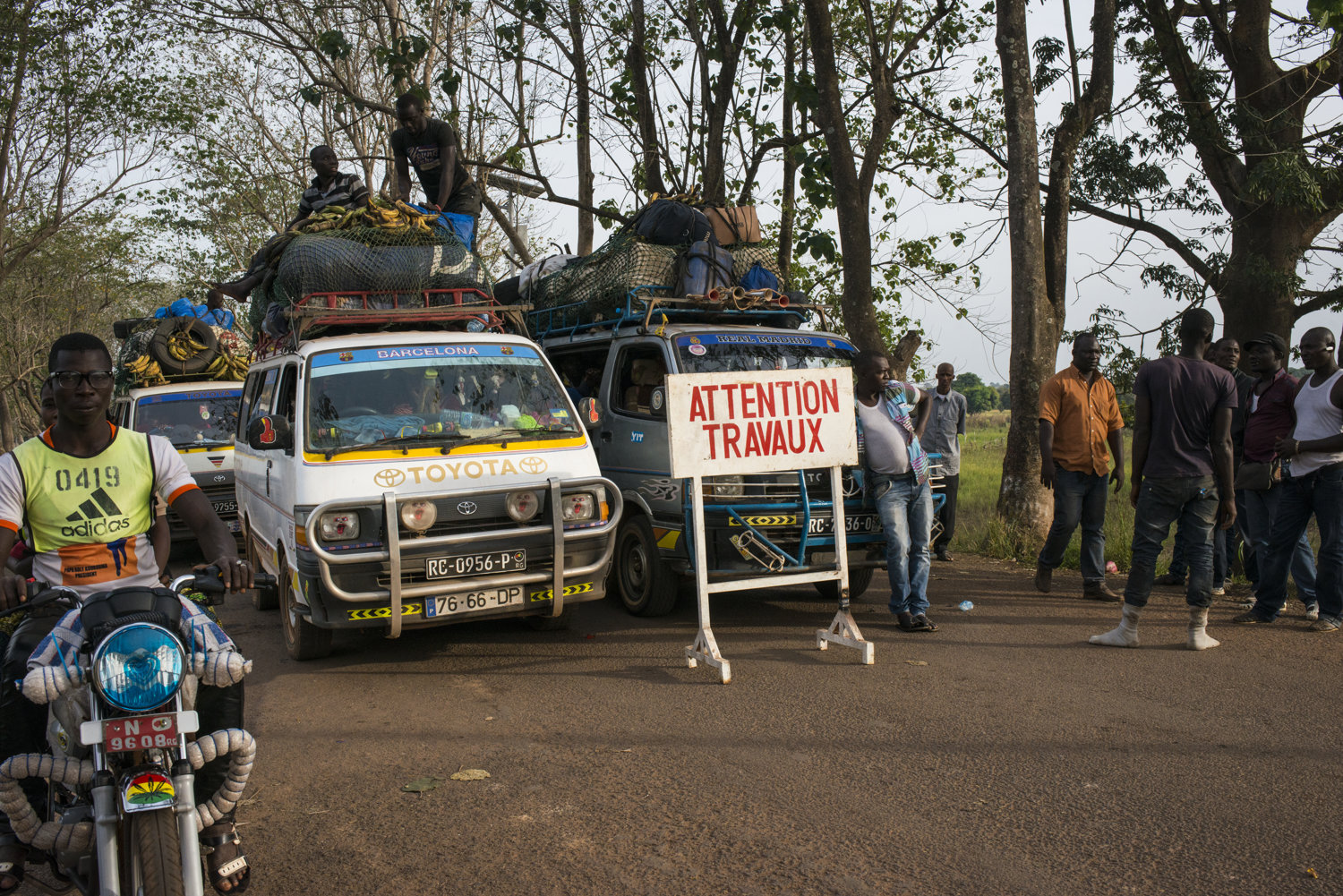
On the main road, traffic is held on a bridge while maintenance crews attend to the bridge. The bridge spans the Niger river which has a source nearby.
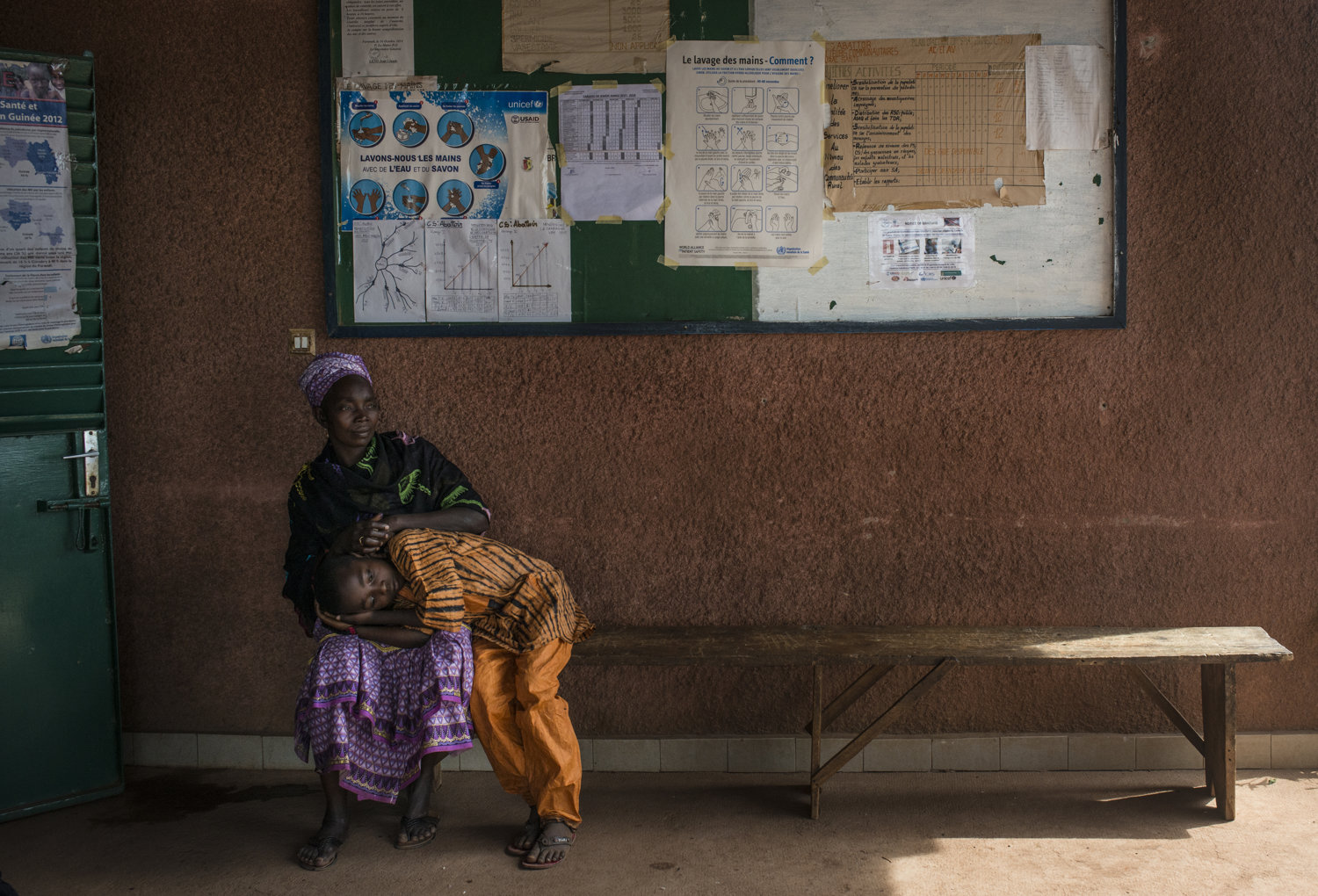
The waiting room at the Faranah Health center in Faranah, Guinea on November 17th, 2015.

Student Mamadi Kourouma practices washing his hands outside the training facility. Washing with soap and water and the proper application and removal of sterile gloves, this session is administered by Mrs Saran Kaba.
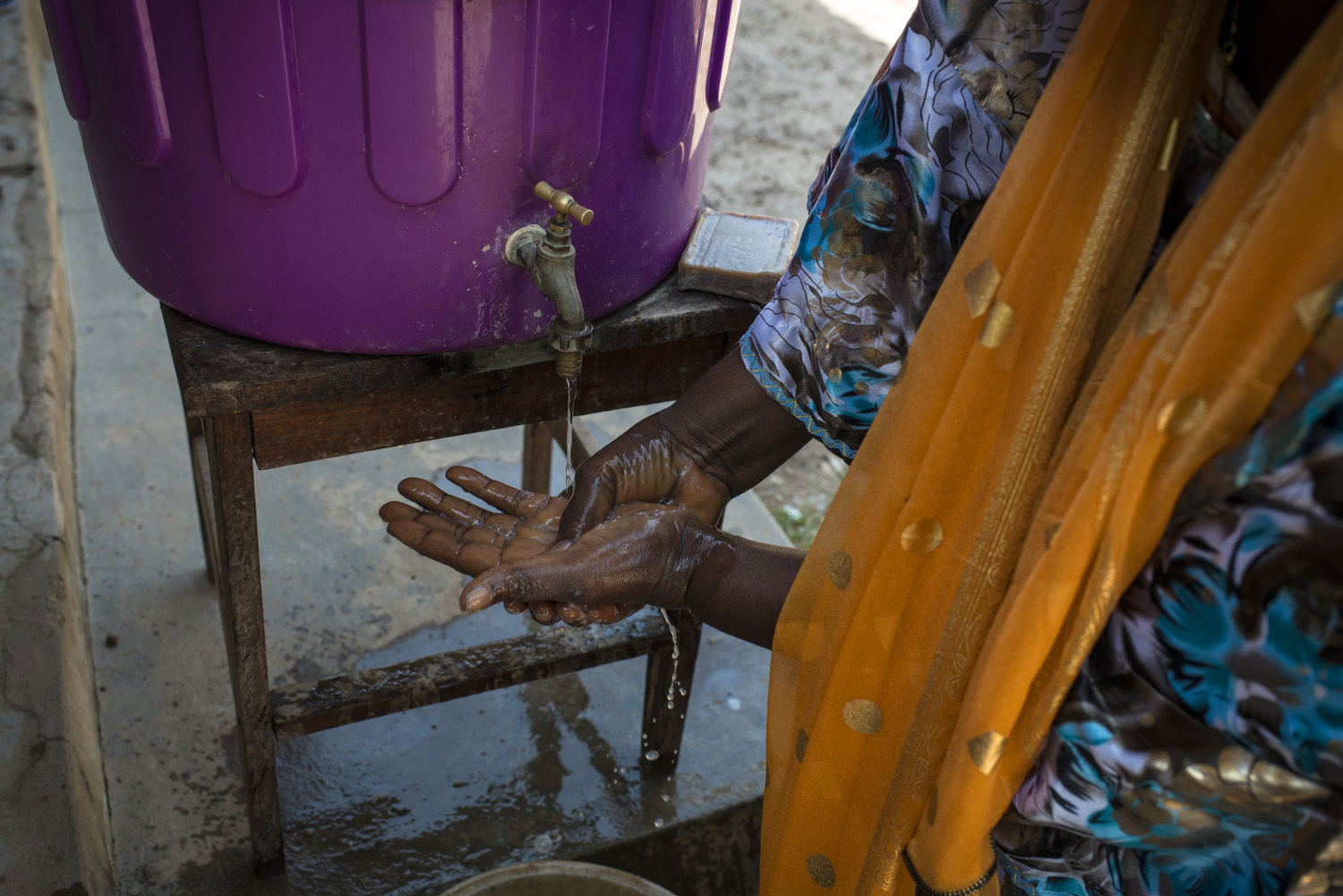
At a rural clinic patients as well as visitors must wash their hands in chlorinated water before entering the health post- the most rural of health clinics available in Guinea. This post is in Heriko, a village outside of Faranah, Guinea on November 19th, 2015.
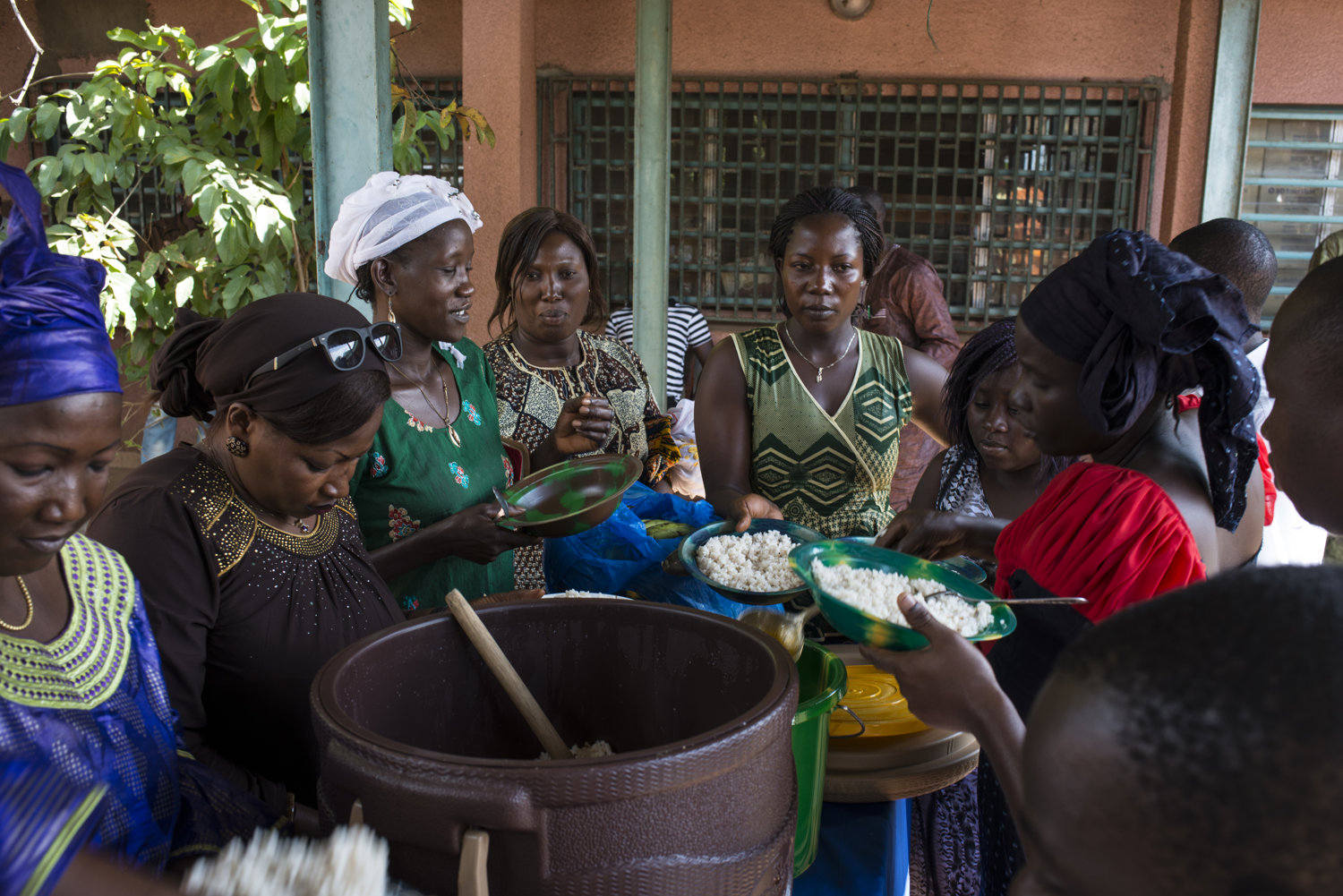
Lunch break. Students eat rice and a local stew for a meal during the training.
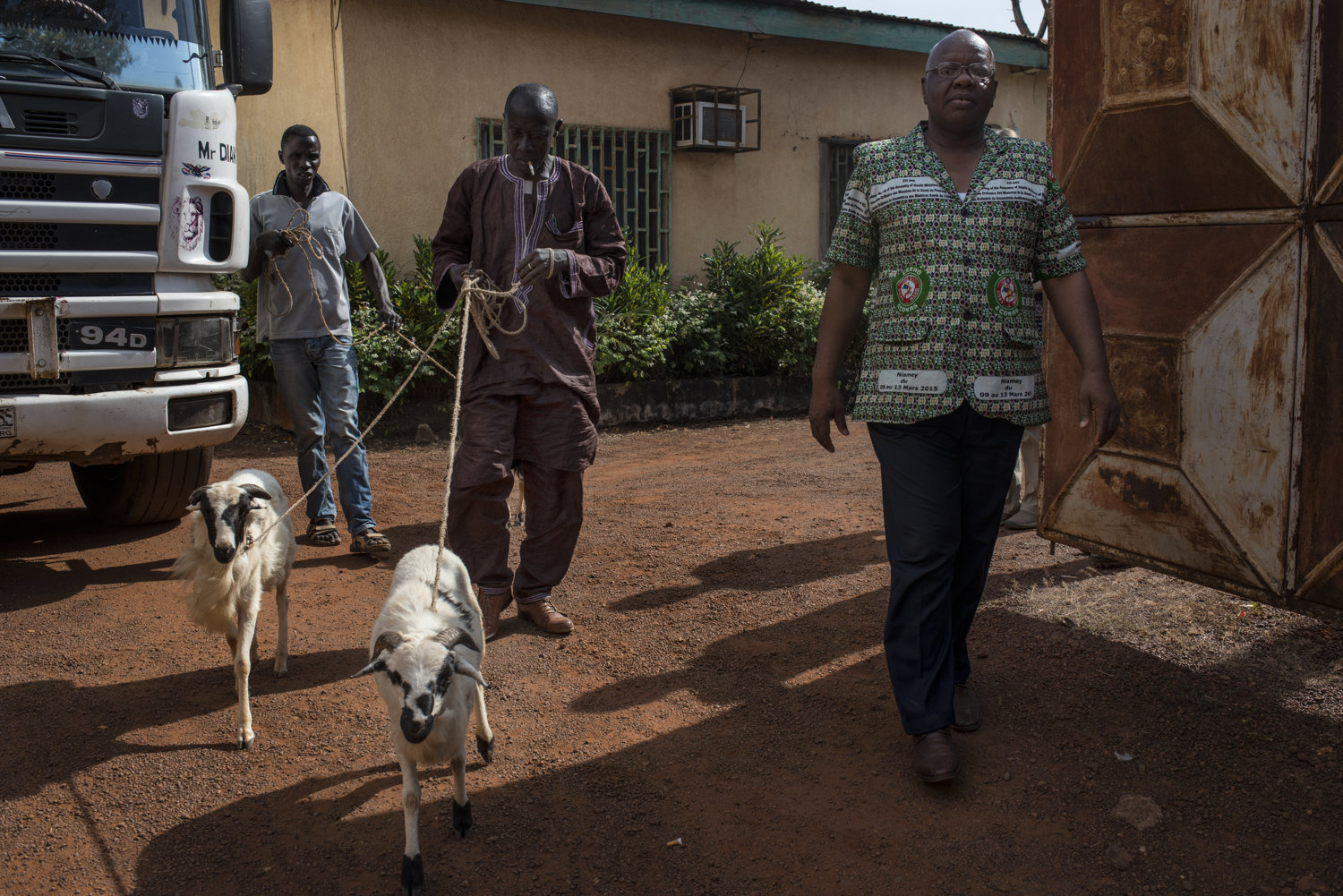
Dr Robert Camera, The Directior National de la Prevention et Sant� Communaitaire walks outside his office in Faranah, Guinea alongside two goats that were given to the JHIPAGO trainers as a gift of thanks.
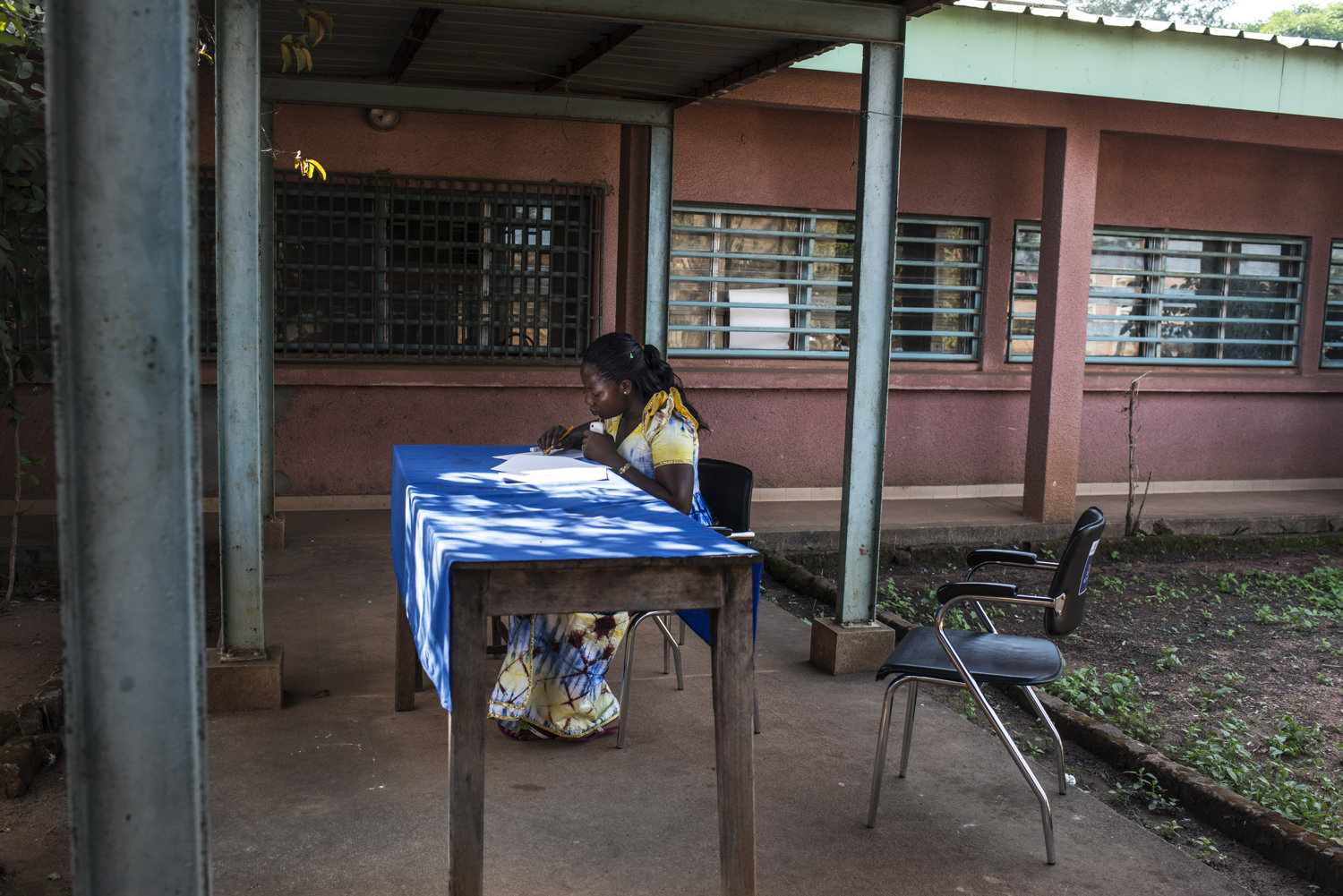
Haba Madeline takes a final test before class begins on Day 5of the JHIPAGO training is led by Dr. Thierno Sadou- where he shows how Ebola is transmitted through contact in Faranah, Guinea on November 21th, 2015.
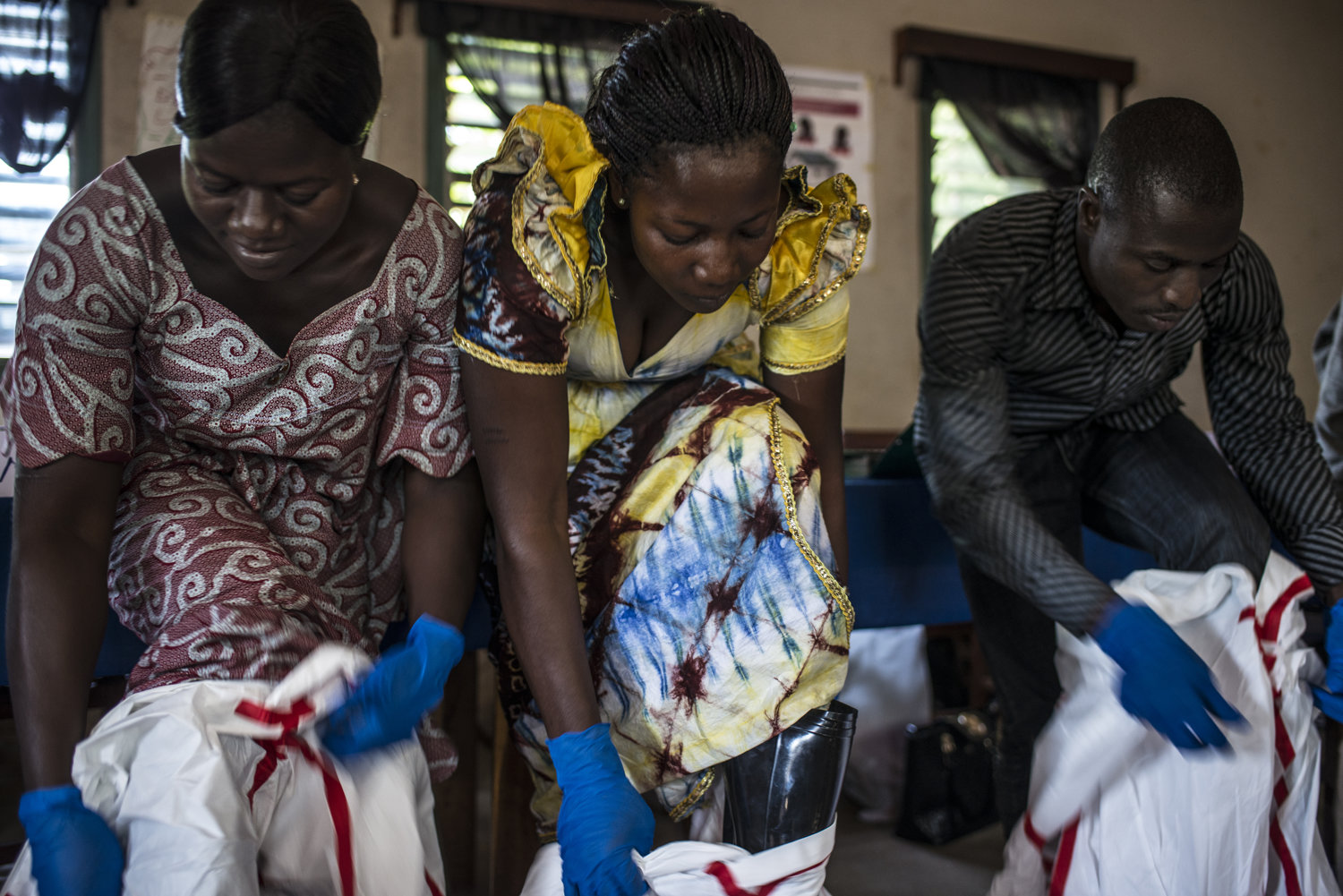
Students Elisabeth Haba, Madeline Haba and Ismael Camera complete the final tests of the training, including putting on protective gear.
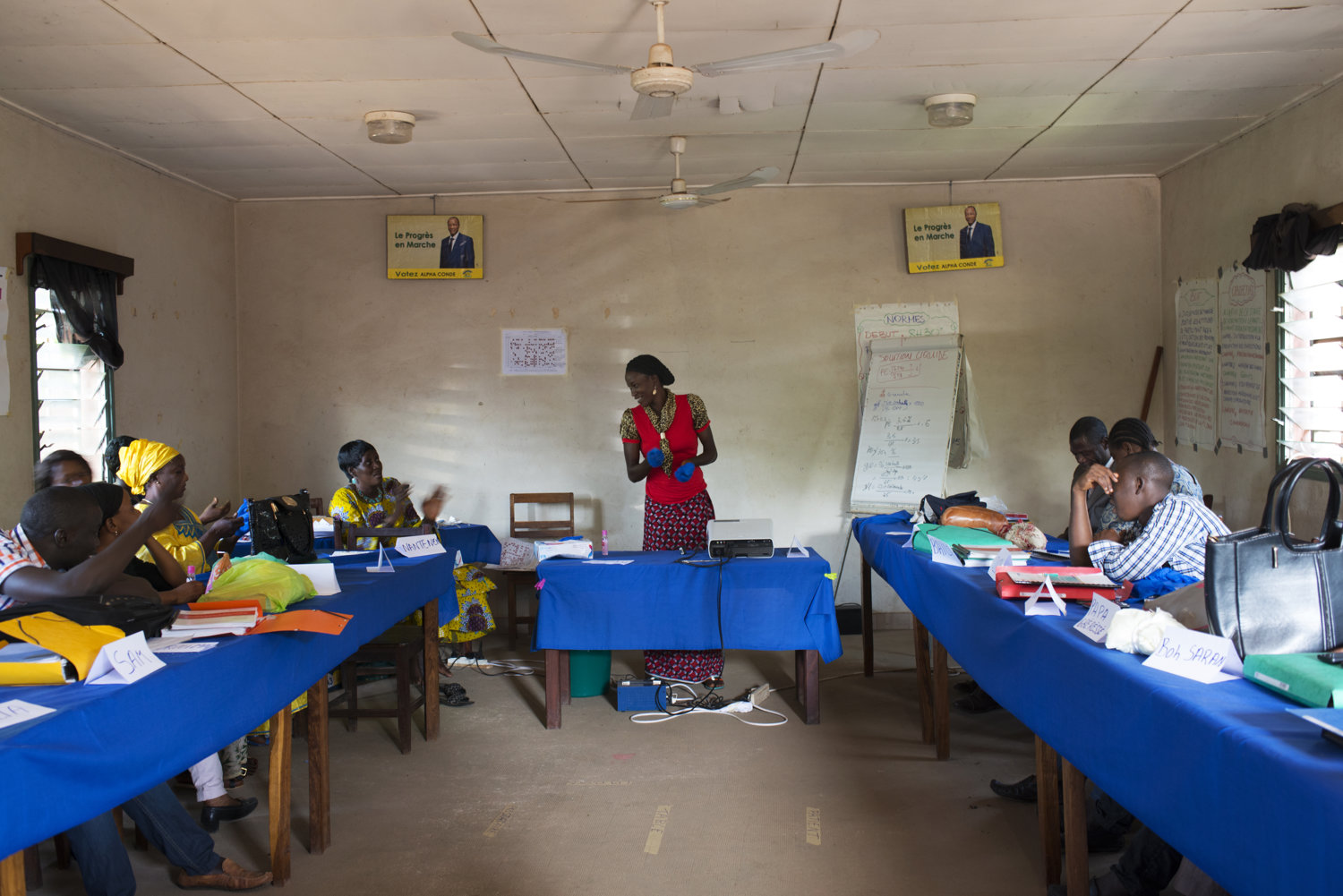
Student Kadiatagbe Fofana complete the final tests of the training, including putting on gloves.
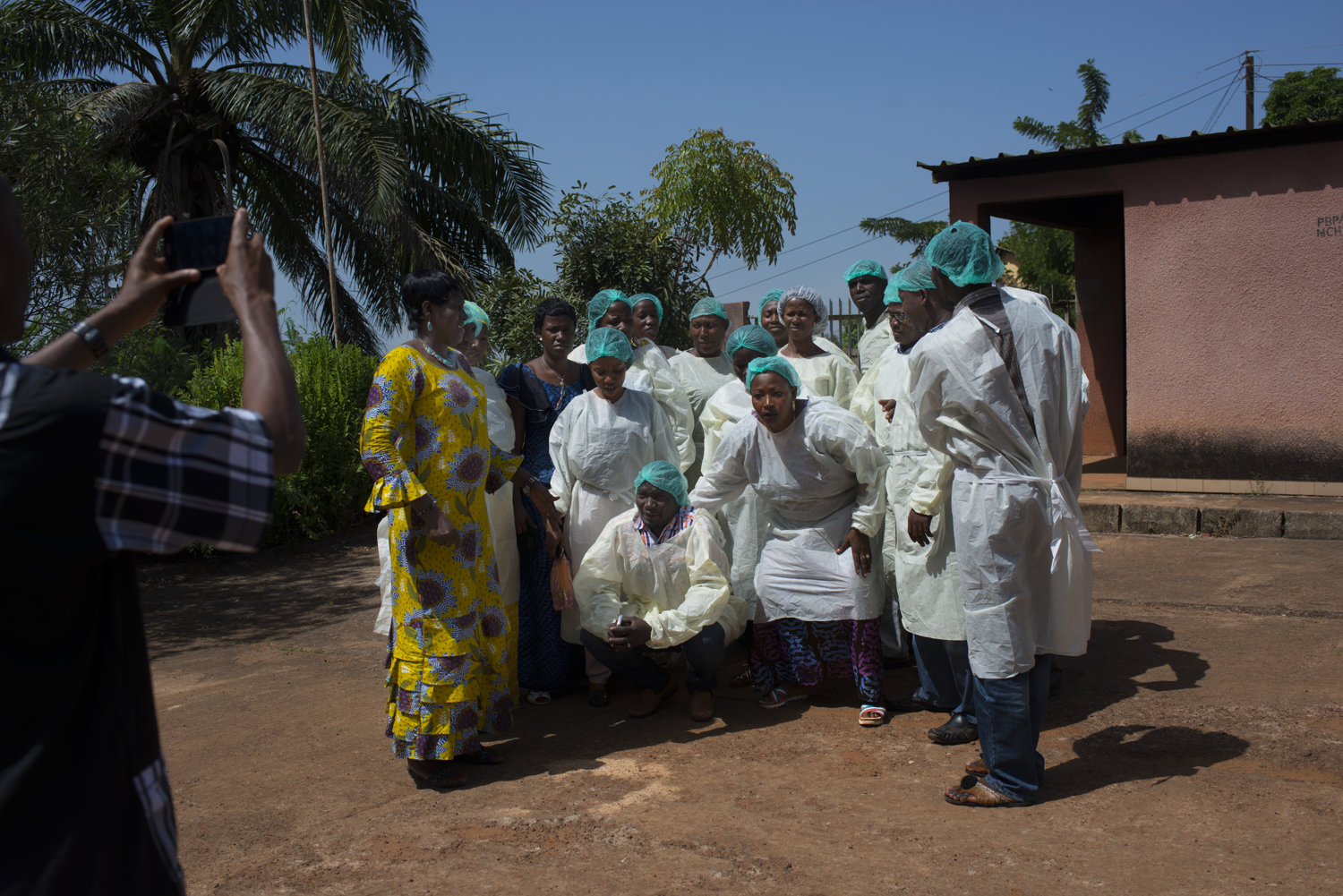
After the final tests students take a group photo while wearing protective gear.

Students leave the final day of training and take motorbikes or walk to their homes.
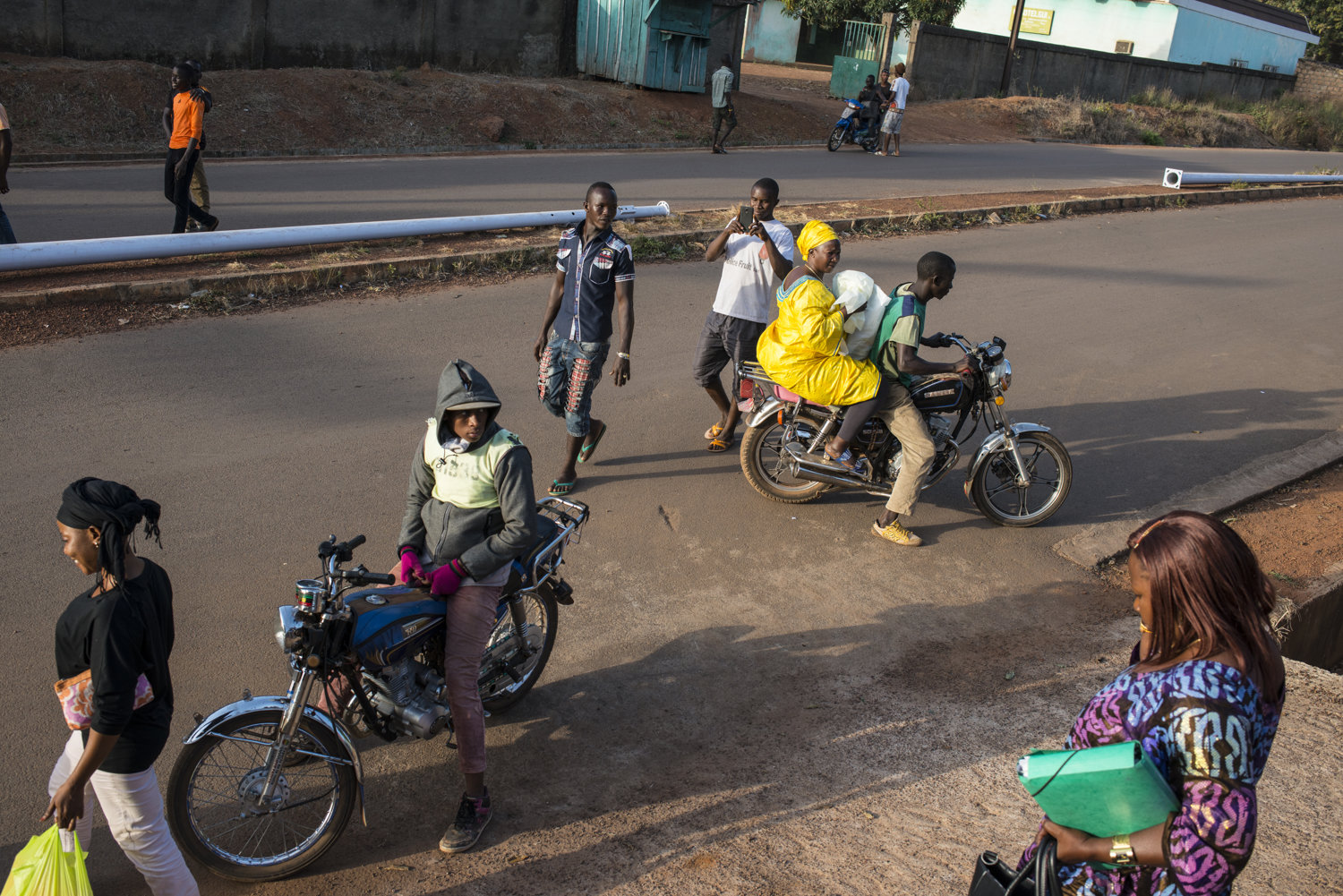
Students leave the final day of training and take motorbikes or walk to their homes.
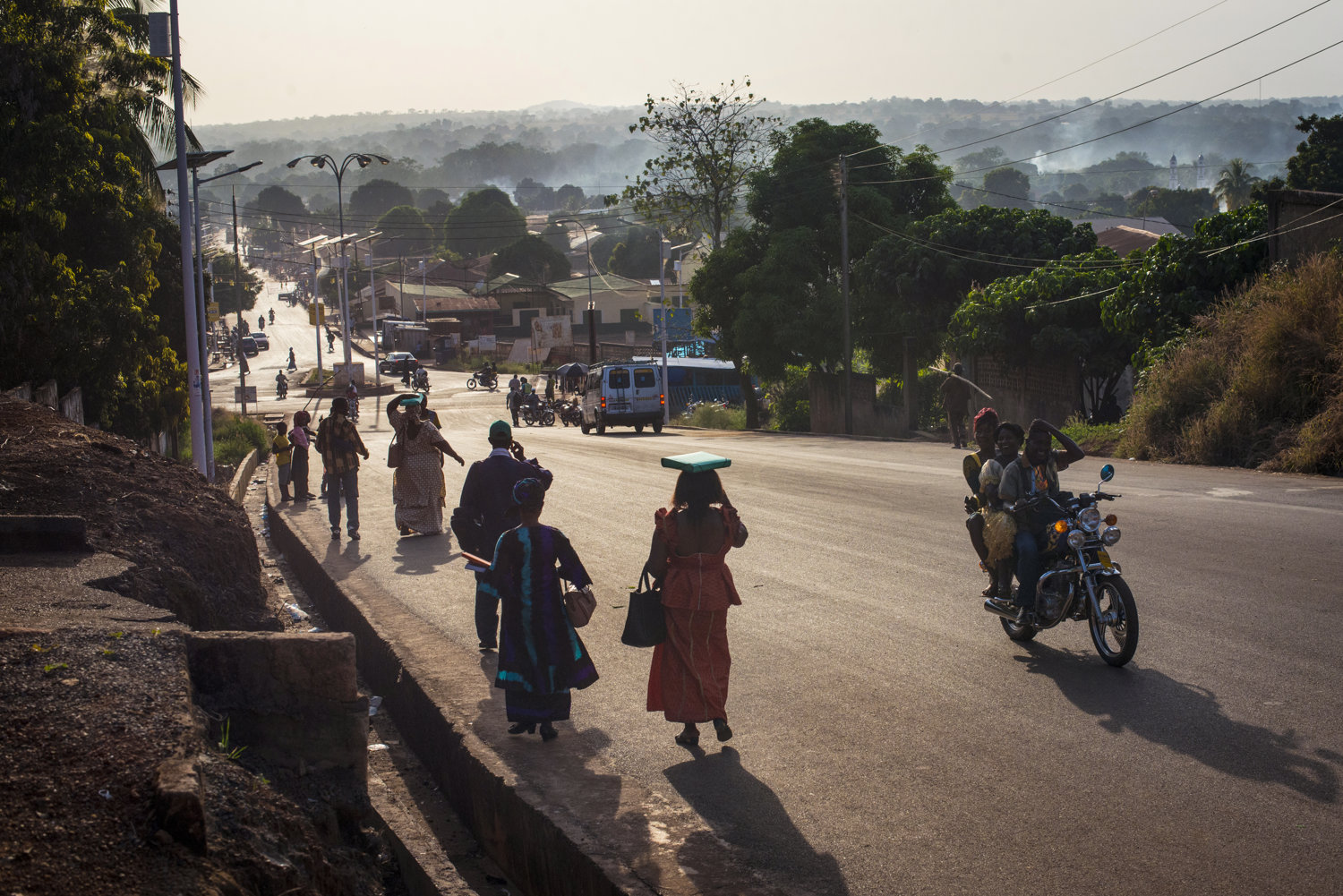
At the end of JHIPAGO training, students leave the facility, which is in Faranah, Guinea on November 18th, 2015.
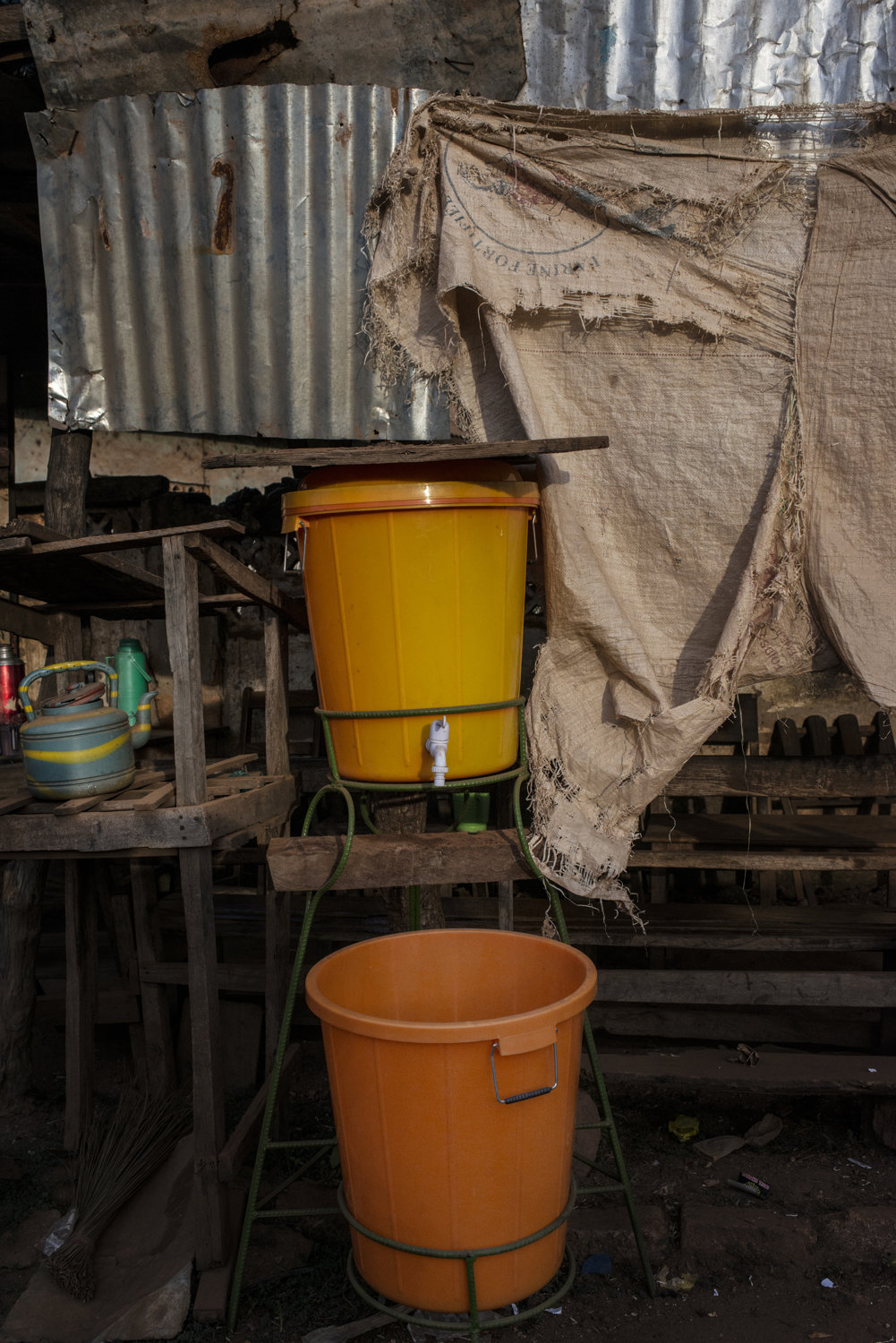
A hand washing stand near the market in Faranah, Guinea. The stands contain a mixture of bleach and water which kills germs including ebola. These colorful basins can be found throughout the country.






















Students practice hand-washing with paint to show the spots they missed. Students are handed out protective gear to practice with on Day 2 of the JHIPAGO training. This session is led by Mrs Saran Kaba-in Faranah, Guinea on November 17th, 2015.
Student Fofana Kadiatagbe at Day 1 of the JHIPAGO training which consists of five days focusing on disease prevention and proper use of protective gear to keep medical workers and patients safe.
Dr. Thierno Sadou, shows students how to put on and take off gloves safely on.
Dr. Kadiatou Traore leads a session in Faranah, Guinea on November 17th, 2015.
Students practice hand-washing with paint to show the spots they missed.
Elisa, center, practices putting on protective gear with her fellow students. Students are handed out protective gear to practice with on Day 2 of the JHIPAGO training. This session is led by Mrs Saran Kaba-in Faranah, Guinea on November 17th, 2015.
At the training students learn the proper way to put on, and take off protective gear without endangering them or the patients, this session is administered by Dr. Thierno Sadou.
At the training students learn the proper way to put on, and take off protective gear without endangering them or the patients, this session is administered by Dr. Thierno Sadou.
On the main road, traffic is held on a bridge while maintenance crews attend to the bridge. The bridge spans the Niger river which has a source nearby.
The waiting room at the Faranah Health center in Faranah, Guinea on November 17th, 2015.
Student Mamadi Kourouma practices washing his hands outside the training facility. Washing with soap and water and the proper application and removal of sterile gloves, this session is administered by Mrs Saran Kaba.
At a rural clinic patients as well as visitors must wash their hands in chlorinated water before entering the health post- the most rural of health clinics available in Guinea. This post is in Heriko, a village outside of Faranah, Guinea on November 19th, 2015.
Lunch break. Students eat rice and a local stew for a meal during the training.
Dr Robert Camera, The Directior National de la Prevention et Sant� Communaitaire walks outside his office in Faranah, Guinea alongside two goats that were given to the JHIPAGO trainers as a gift of thanks.
Haba Madeline takes a final test before class begins on Day 5of the JHIPAGO training is led by Dr. Thierno Sadou- where he shows how Ebola is transmitted through contact in Faranah, Guinea on November 21th, 2015.
Students Elisabeth Haba, Madeline Haba and Ismael Camera complete the final tests of the training, including putting on protective gear.
Student Kadiatagbe Fofana complete the final tests of the training, including putting on gloves.
After the final tests students take a group photo while wearing protective gear.
Students leave the final day of training and take motorbikes or walk to their homes.
Students leave the final day of training and take motorbikes or walk to their homes.
At the end of JHIPAGO training, students leave the facility, which is in Faranah, Guinea on November 18th, 2015.
A hand washing stand near the market in Faranah, Guinea. The stands contain a mixture of bleach and water which kills germs including ebola. These colorful basins can be found throughout the country.